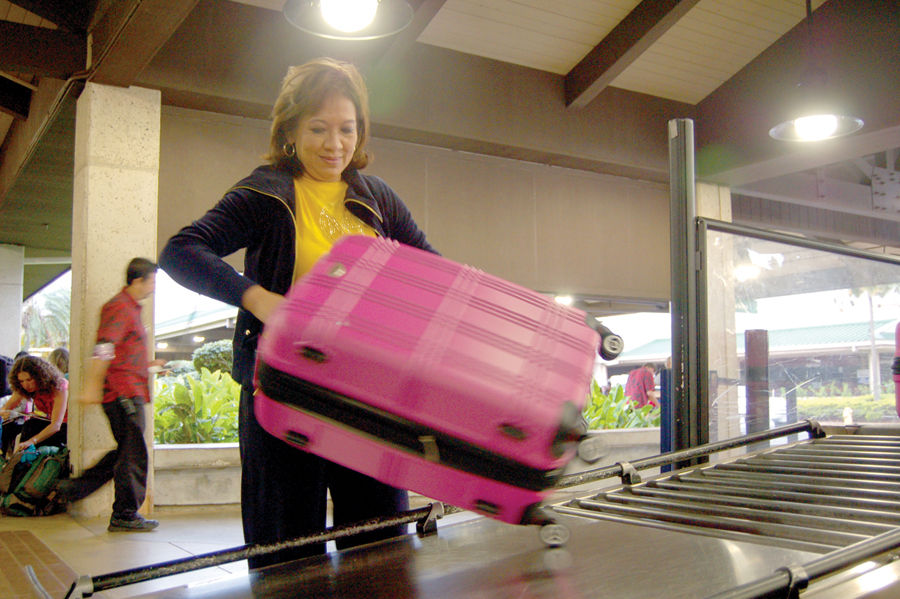LIHUE — Two federal lawmakers from Hawaii are speaking out against a proposed fee increase for airline passengers who start their journey from a U.S. airport. Rep. Tulsi Gabbard and Sen. Mazie Hirono said the proposal to raise the September
LIHUE — Two federal lawmakers from Hawaii are speaking out against a proposed fee increase for airline passengers who start their journey from a U.S. airport.
Rep. Tulsi Gabbard and Sen. Mazie Hirono said the proposal to raise the September 11 Security Fee, also known as the passenger security fee, to raise $195 million in additional revenue for deficit reduction would unduly impact local residents who rely on air travel to commute from one island to another.
“The growth of the fee would have a devastating impact upon the residents who work and live in Hawaii,” Gabbard told fellow lawmakers during a House committee meeting on Wednesday in Washington, D.C. “With no inter-island railway, highway, or ferry system, our residents have no other choice but to fly between islands. Thus, air transportation is an essential lifeline for conducting business, receiving healthcare, and visiting family and friends.”
Hirono, in an email to The Garden Island, agreed and said she would reintroduce “bipartisan legislation to ensure that people in Hawaii and Alaska are shielded from higher fees, particularly for air travel within our states.”
“Raising air travel fees puts an unfair burden on the people of Hawaii who rely on air travel more regularly than those on the Mainland, and I will continue to oppose such increases,” Hirono wrote.
The proposal to raise this fee, which is charged by air carriers on airline tickets for itineraries starting at U.S. destinations, was included in President Barack Obama’s recommended budget for the 2016 fiscal year and submitted earlier this month for congressional review.
How much more will be charged per passenger, however, has not been determined yet.
The Transportation Security Administration-mandated passenger security fee, which is set at $5.60 per one-way trip, or a capped $11.20 per roundtrip, dates back to 2003 when federal lawmakers created it to help offset the government’s cost for providing civil aviation security services.
Revenue collected from the fees are used to fund screening personnel, compensation and benefits, and related expenses for transportation security officers.


